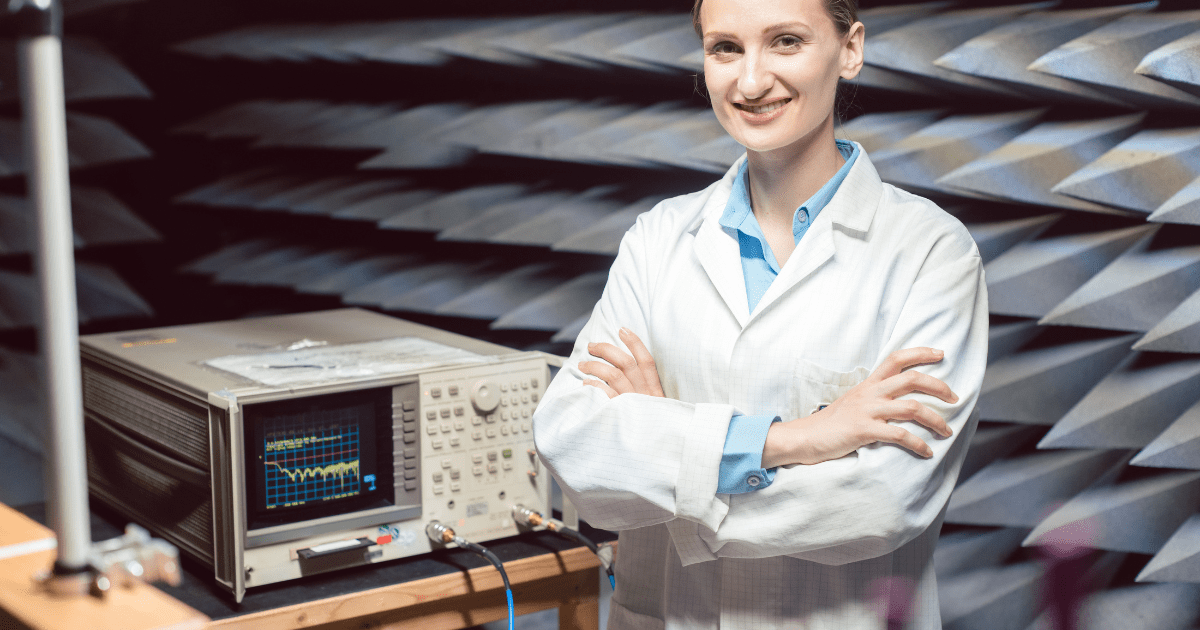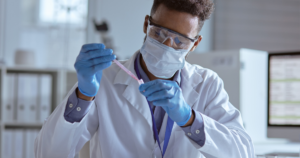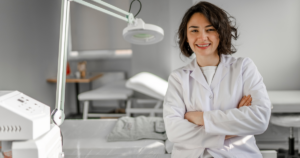The Best Fluffy Pancakes recipe you will fall in love with. Full of tips and tricks to help you make the best pancakes.
How to get a Clinical Lab Certification in 5 steps

Do you want to work in the rewarding field of clinical laboratory science? Becoming a trained and skilled professional in this industry requires obtaining a clinical lab certification. This article will guide you through the five necessary procedures to become certified in clinical labs, with thorough subheadings, pertinent facts, helpful advice, and perspective views.
How to get a Clinical Lab Certification in 5 steps
-
Examine and comprehend the requirements for certification

Finding the Required Certification
Finding the precise clinical lab certification that fits with your career goals is the first step in your path. Medical Laboratory Scientist (MLS), Clinical Laboratory Scientist (CLS), and Medical Laboratory Technician (MLT) are just a few of the credentials that are offered. Find out which certification best fits your hobbies and career goals by doing research on each one.
Understanding the Qualifications
Each certification has a unique set of requirements for applicants. These requirements often include qualifications for prior experience as well as particular educational needs, like degrees or coursework. Make sure you meet all requirements by taking the time to carefully research the eligibility requirements for the certification you’ve chosen.
Looking for Advice
Reaching out to experts who already possess the qualifications you’re striving for is highly advised. Their experiences can offer priceless knowledge regarding the certification procedure, the difficulties they encountered, and success strategies.
-
Preparation for Education
Academic Background
Focus on completing the educational requirements once you’ve decided which certification you want to pursue. Completing a relevant bachelor’s degree program in medical laboratory science or a similar discipline may be required for these. For advanced professions, certain certifications may even call for a master’s degree. To make sure your education meets the certification requirements, look into approved programs and universities that offer the necessary degrees.
Skill development
In addition to academic credentials, developing your lab skills is crucial. Participate in workshops, seminars, and online courses to increase your understanding of quality control, data analysis, and laboratory procedures. Building a solid foundation of practical skills will be beneficial for your future work as a clinical lab professional as well as the certification process.
Potential Networking Contacts
Engage with teachers, mentors, and other students as you go through your education. Creating a network within the industry can give you access to useful contacts, new employment prospects, and a welcoming community.
-
Acquiring Knowledge and Training
Practical Knowledge
Clinical lab accreditation is fundamentally dependent on practical experience. Look for part-time jobs, internships, or externships in clinical laboratories. These changes give you essential exposure to authentic laboratory circumstances and let you put your academic understanding into action. Focus on learning various laboratory techniques, utilizing cutting-edge technology, and working with knowledgeable professionals throughout this time.
Tasks and Hours Necessary
Different certificates specify a minimum amount of activities and practical hours to be performed before certification. Keep a record of your progress and experiences, and make sure you meet all the prerequisites. Engage with mentors and supervisors to get advice and comments that will help you improve your abilities and confidence.
Maintaining a Journal
A valuable tool for reflection and a record of your development during your practical training can be keeping a journal of your experiences, difficulties, and accomplishments.
-
Submission and Evaluation

Application Method
It is now time to submit an application for the clinical lab certification after fulfilling the educational and professional requirements. Pay close attention to the application guidelines and supply all required paperwork and eligibility verification. Check your application twice to be sure there are no mistakes or omissions that can cause the certification process to take longer.
Preparation for exams
Success on the certification exam depends on thorough preparation. Make use of the study guides, mock exams, and review programs offered by reliable sources. Make a study plan that will enable you to cover all pertinent material and concentrate on any areas that could require more help. In order to make sure you are satisfied with the structure and length of the actual test, practice time management during mock exams.
Test-Taking Techniques
To maximize your study sessions and enhance information retention, take into account strategies like the Pomodoro Technique (studying in focused intervals).
-
Upkeep and Continuing Education
CEUs (Continuing Education Units)
Your professional career doesn’t end when you earn your clinical lab certification. You must regularly obtain Continuing Education Units (CEUs) in order to keep your certification current. You may be sure that you’re up to date on all of the most recent developments in laboratory science, technology, and laws by taking CEUs. To earn CEUs and expand your knowledge, attend webinars, conferences, and workshops.
Updating and Recertifying
Most certifications have a deadline for expiration and call for renewal after a particular amount of time. Keep track of the day that your certification expires and begin the renewal procedure early. You must normally present documentation of your CEU completion and may need to pass a recertification exam as part of this procedure. By being proactive about renewal, you can guarantee that your certification is current and legitimate.
Collaboration and mentoring
Think about looking for mentorship from seasoned experts in the industry. Through your path, their opinions might offer helpful insights, career suggestions, and encouragement.
Also Read: Top Medical Certificate Programs for Healthcare Technicians
Conclusion
Finally, it should be noted that pursuing a clinical lab certification needs careful planning, commitment, and a constant desire to learn. You will be well on your way to becoming an accomplished and certified clinical laboratory professional by adhering to these thorough processes and implementing extra ideas. Keep in mind that obtaining this certification will attest to your knowledge and pave the way for a fulfilling future in medical laboratory science.
References
- Clinical Laboratory: https://www.ncbi.nlm.nih.gov/books/NBK535358/
- Accreditation of Medical Laboratories – System, Process, Benefits for Labs: https://www.ncbi.nlm.nih.gov/pmc/articles/PMC6287213/
- Practical Clinical Training in Skills Labs: Theory and Practice: https://www.ncbi.nlm.nih.gov/pmc/articles/PMC5003146/
- Providing Laboratory Medicine Training in a Low-Resource Setting: https://www.ncbi.nlm.nih.gov/pmc/articles/PMC8221141/




